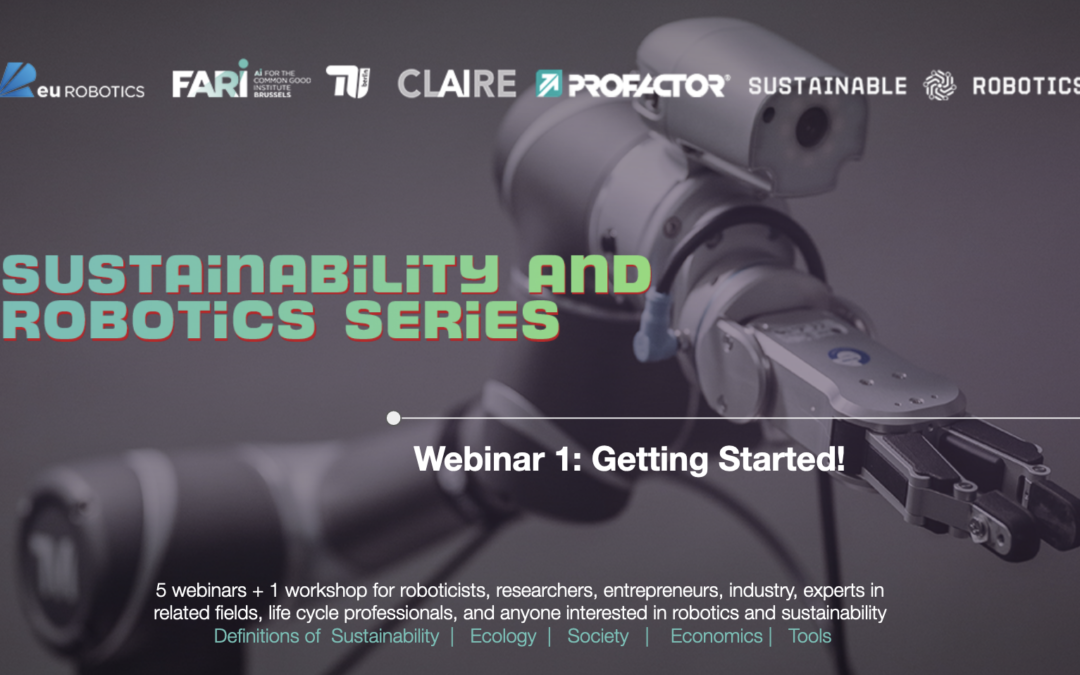
Series of webinars: Sustainability & Robotics
About the Series
Sustainability has become a critical challenge in Society and the field of AI and Robotics will not remain unaffected. From environmental to social or economic impacts, roboticists, entrepreneurs, researchers and public authorities are increasingly confronted with the topic. What is Sustainability? Where does AI and Robotics stand in that regard? What can organizations do to integrate Sustainability in their projects? What are the existing tools, frameworks at our disposal today? Are there initiatives and lessons learnt in other fields that could help AI and Robotics? Several reports, publications and events have shown a growing interest in the community to be more proactive. But where to start? How to avoid greenwashing? All these questions (among others) will be addressed in our 2023 online series of 5 webinars.
This series is open to all actors of AI and Robotics: from industry, academia and beyond. Its goal is to raise the community’s awareness of Sustainability, spark discussions, exchange experiences and provide free introductory training with concrete use-cases. The webinar series will aim at having a balanced representation of academic and private organizations, sharing their knowledge. During each session, participants will be encouraged to share their experiences, needs, questions, and practical suggestions. Our goal? Identifying key priority actions to reinforce Sustainability in Robotics and AI.
Updates and registration here:


Recent Comments